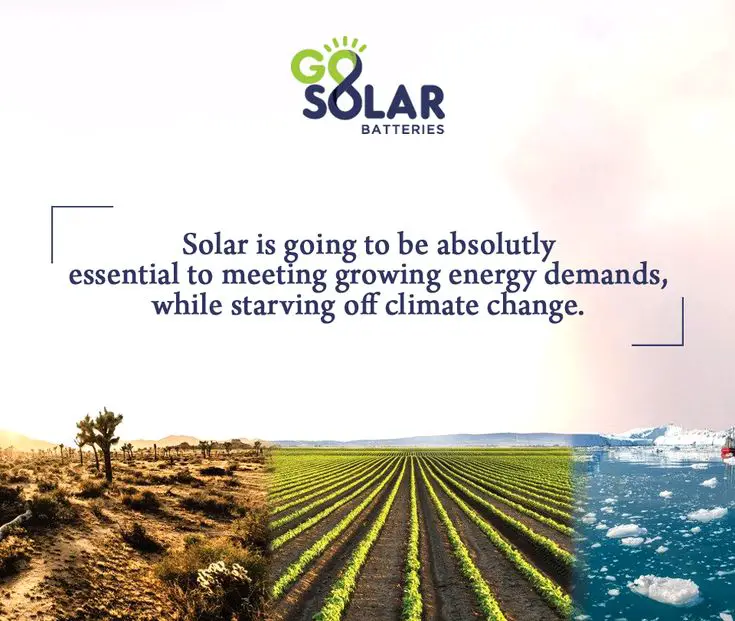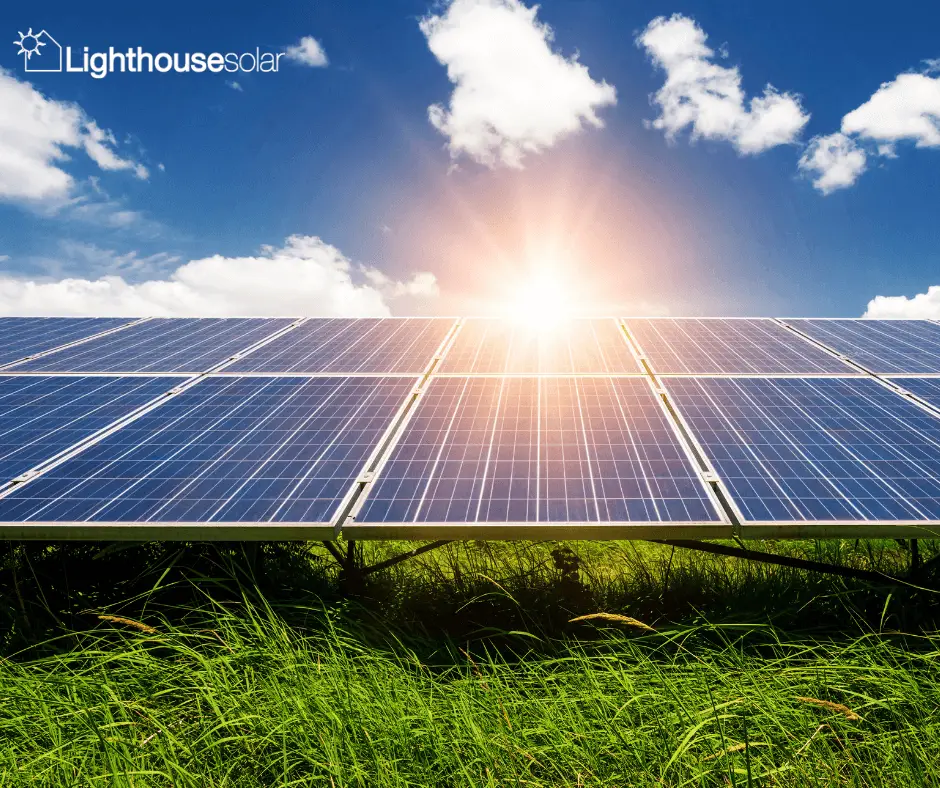The Future Of Solar Energy Storage
The other problem with our current solar energy storage solutions are the basic limitations of certain battery types. With the advent of Tesla’s Power Wall and some of the other new storage options, large Lithium Ion batteries are taking a step in the right direction. These batteries are smaller, lightweight, and easier to produce thanks to our reliance on Lithium Ion batteries in so many other industries. In addition, they are very low maintenance and can handle going through regular deep cycle charges without harm for many years. However, many older solar energy storage systems still rely on older battery technologies that might not be as effective. For instance, early adopters of solar panels were known to link together a chain of lead acid batteries to create their own storage matrix. While this system was effective in its time, it can also be risky. As those systems fade out, more and more solar supporters are turning to Lithium Ion batteries, or their low maintenance VRLA battery equivalents to get better results.
If you are planning a solar addition to your building, you need to start thinking about solar energy storage early in your planning process. MK Battery has a large selection of battery storage options available so you can increase your solar efficiency and make sure you have plenty of power stored.
How Much Storage Do I Need
Every homes energy needs are unique. The same way you would size your solar panel energy system to meet energy requirements battery storage capacity should also be matched with your energy requirement. It also takes into account the duration of time you need your battery storage to provide you with power.
Is Solar Energy Storage Right For Your Home
If you live somewhere that experiences frequent electric grid power outages, or if your utility uses Time-of-Use rates, then solar battery storage will be a worthwhile investment for you. Otherwise, solar batteries are still pretty expensive, so they wont pan out financially for most homeowners.
While there are plenty of solar battery benefits, you need to consider if those benefits outweigh the costs. What we mean is, solar energy storage isnt something you need to install, its more of a luxury.
While solar energy storage might not provide you with additional financial savings, solar panels almost certainly will. Solar panels are cheaper than ever and will start saving you on your electric bills from Day 1. You can see if solar panels are right for your specific home using our solar savings cost and savings calculator.
Recommended Reading: How To Start A Sole Proprietorship In Kentucky
How Is Solar Energy Stored
Solar panels are one of the best tools we have to combat climate change and to gain some freedom from utility companies. But solar panels do have one fatal flaw: they dont produce electricity when the sun isnt shining.
Thats where solar energy storage comes in. Pairing a solar panel system with energy storage makes it possible to use solar energy, even when there is no sun, by saving the electricity for later use.
Solar storage is not only great for the environment, it also unlocks a number of benefits for homeowners, like access to reliable backup power and in some cases, additional electric bills savings.
Lithium Ion Versus Lead Acid

Often, we are asked which battery technology is best for battery storage.
For home storage we would recommend Lithium Ion technology. Whilst more expensive, as an upfront investment the life span of lithium ion by far outweighs the cost of installing lead acid.
Typically, with a lithium battery you are looking at around 6000 cycles at a 90% discharge or 8000 cycles at an 80% discharge.
This in terms of life span, at a discharge rate of 90% with 6000 cycles, would be around 16.43 years based on one cycle a day, or 8.2 years at 2 cycles a day.
Lithium ion batteries are constantly developing and can come in various sizes, with modular batteries starting at 1.2kWh all the way up to 10kWh batteries.
Despite what we have said above, there is still a role for lead acid batteries which are ideally suited to off-grid applications and are a cost-effective solution where people are using them irregularly.
All batteries need a battery manager, these prolong life and in the case of the Li-Ion, is often built in to the battery. It is important that the battery and any inverter / charger unit are compatible, as this can be the case.
Read Also: 10 Foot Patio Umbrella With Solar Lights
Why Solar Batteries Are A Long
Solar batteries are deep cycle batteries. Unlike your cars battery, which is designed to discharge a high voltage for a short period of time, deep-cycle solar batteries discharge a lower voltage over a much longer period of time usually 20 to 100 hours or more and can be safely charged and recharged over thousands of cycles. They come with reasonably long warranties Teslas Powerwall lithium-ion battery, for example, has a 10-year warranty making them a long-term investment.
As well as the economic benefits, with a solar system youre creating your own renewable energy which is helping contribute to a sustainable future. Its a win-win: a money-saving strategy thats helping you create an energy-efficient home.
B Balancing Excess Solar Energy Generated
If there is no storage backup like lead acid batteries or sodium chloride batteries , electricity generated has to be used immediately. As a result, you might have to take your solar system offline to avoid over-generating electricity.
Image Source: Solarwashington.com
Storage is important when there is little solar production and high demand for power on cloudy days, at nighttime when solar panels dont work, or with passing clouds.
When you store solar energy, you can compensate for low energy production on slow days when grid operators need it. Additionally, storage is a way to keep excess energy as an insurance policy for absent sunlight.
Don’t Miss: How To Run A Solo Law Practice
Ii Capacity And Power
Image Source: ecoworthy.com
The right battery depends on how you use electric power and how much power you need at any given time. Since solar panels have photovoltaic cells to harness the energy, your battery capacity also matters. Additionally, battery storage capacity varies among batteries. Therefore, they all have a particular amount of clean energy that they can hold.
What Are The Advantages Of Storing Solar Energy
Saving excess energy is vital to getting the most out of any solar power system. In the same way, this method can help in reducing more fossil fuel emissions and result in more efficient energy grids and expense savings.
A few of the advantages of solar energy include the following:
- Energy Resilience
Its worth noting that the energy grid is susceptible to power outages and disruptions. This can be because of various factors, such as rugged weather conditions and wildfires.
Solar energy storage forms a shielding bubble during troublesome events by decentralizing where we acquire our energy from.
- Bridging the Gaps
Short-term energy storage enables a steady flow of energy in times of short disruptions in generators, like routine maintenance or passing clouds.
- Stabilizing Electric Loads
If it is not stored, you have to utilize electricity the moment it is produced. Energy storage enables excess production to be stored for later use. Storing excess energy enables your fixtures to remain lit at dusk or when the wind stops blowing.
In other words, energy storage enables an energy reservoir to be charged when production is at a peak and demand is low and then dispensed when production drops and demand increases.
You May Like: Buy Solar Panels In San Diego
Thermal And Mechanical Energy Storage Systems
Thermal and mechanical energy storage systems cost a lot. But, the benefits of these storage options far outweigh the costs.
For example, solar energy storage solutions can help utilities keep up with peak energy demand thus reducing energy costs. Additionally, it can help provide critical backup.
Since utility companies and businesses have bigger budgets than individual households, mechanical and thermal storage are viable options.
Home Solar Energy Storage
Residential solar has myriad benefits, including resiliency, cost savings, and decentralization of electrical production . But the commercial energy storage methods we discussed above are likely cost-prohibitive for the average homeowner. Thankfully, battery storage can now offer homeowners a cost-effective and efficient way to store solar energy.
Lithium-ion batteries are the go-to for home solar energy storage. Theyre relatively cheap , low profile, and suited for a range of needs. Other batteries commonly available for residential use include saltwater batteries and lead-acid batteries.
Regardless of the battery type, home backup batteries allow homeowners to save energy during high production, low demand times for use during high demand periods when generation diminishes. Home solar energy storage inherits the same benefits of large-scale solar energy storage, translating into resiliency, uninterrupted energy, and cost savings. And these benefits go directly to the homeowner.
Recommended Reading: How Does A Grid Tied Solar System Work
What Is Energy Storage
Storage refers to technologies that can capture electricity, store it as another form of energy , and then release it for use when it is needed. Lithium-ion batteries are one such technology. Although using energy storage is never 100% efficientsome energy is always lost in converting energy and retrieving itstorage allows the flexible use of energy at different times from when it was generated. So, storage can increase system efficiency and resilience, and it can improve power quality by matching supply and demand.
Storage facilities differ in both energy capacity, which is the total amount of energy that can be stored , and power capacity, which is the amount of energy that can be released at a given time . Different energy and power capacities of storage can be used to manage different tasks. Short-term storage that lasts just a few minutes will ensure a solar plant operates smoothly during output fluctuations due to passing clouds, while longer-term storage can help provide supply over days or weeks when solar energy production is low or during a major weather event, for example.
Do Solar Panels Work Without Sun

Solar panels can produce some energy on cloudy days or when there are a few passing clouds. Your solar panel system will also produce some power during nights with a full moon. In both cases, however, the amount of power produced is minimal, especially in comparison with direct sunshine power output.
Also Check: Diy Solar With Will Prowse
How Does The Fip Scheme Differ From Fit
Japanâs FIT scheme has contributed to the rapid deployment of solar and onshore wind generation capacity. But as the scheme provides a fixed price for the electricity produced, there is no incentive for generators to increase their output during peak demand hours or reduce output when the market is oversupplied.
Under the FIT scheme, utilities buy power from renewable generators at a fixed price regardless of market price fluctuations. This provides project developers with certainty as to the price the plant will receive for the electricity it generates. However, renewable generators are uncoupled from the market and unaffected by imbalance risk, so they assume no additional cost for the difference between the amount of electricity generated and the estimated generation submitted to the Organization for Cross-regional Coordination of Transmission Operators in advance.
The FIP approach aims to address this imbalance by paying generators a subsidy based on the wholesale market price, plus a marginal rate. This links the revenue the generator receives with the market price and will provide more incentive for them to increase supply during peak demand hours â such as through the use of battery storage.
Utilities are no longer required to purchase electricity from renewable generators. Instead, the generators will either sell their power on the wholesale market or in bilateral trades with retailers.
Is Home Battery Storage Right For Your Property
Its a good question and the answer is, it depends on your lifestyle, energy usage and size of PV system.
On average, a household would utilise 35 – 50% of the generated system without a battery. This would rise if you are in the house for much of the day. However, battery storage can raise this to 80%. If you have a system already installed and use all the energy generated from your PV system, then battery storage may not be right for you. However, if there is spare generation, then it could be a great way to further reduce your energy bill.
It is always recommended to look at your inverter monitoring to see how much of the power generated is being consumed during the day, before deciding if battery storage is right for you.
Read Also: Where Is Solar Plexus Chakra
How Much Does Solar Energy Storage Cost
Adding solar energy storage to your home will cost somewhere between $9,000 and $12,000.
Solar energy storage costs have been declining each year as battery technology improves and more people adopt it. But that doesnt mean that solar storage doesnt still cost a pretty penny. Luckily, there are some states that offer rebates and incentives specifically for solar energy storage, like Californias SGIP Program, that help soften the blow of upfront costs. Not only that, solar batteries are eligible for the 30% federal solar tax credit, as well.
Learn more: State-by-State Solar Incentive Guide
The actual price youll pay for solar energy storage depends on the type of battery that you chose, the manufacturer, and how many batteries you install. Some of the most popular brands of solar batteries include the Tesla Powerwall, LG Chem RESU, and sonnen.
Not sure where to start when it comes to shopping for solar energy storage? Check out our complete solar battery guide.
Solar + Storage: How Is Solar Energy Stored
A common misconception about solar energy is that solar panels store the energy they create, but if thats not true then how is solar energy stored? How can it be used? Can you ever run out of storage?
With more homeowners and businesses making the switch to clean, renewable energy, over 3 GW of solar installed in New York State alone, its important to understand not only how solar energy is made, but how it can be stored and used when you need it most.
Also Check: Can You Install Solar Panels Yourself
Do Solar Panels Store Unused Electricity
No, solar panels do not store unused electricity. Solar panels, also known as photovoltaic panels, harness energy from the sun and convert it into electricity. This electricity is then sent to your household, business, or other destination where it can be used to power appliances and lights.
Solar panels are not designed to store excess electricity instead, any unused electricity will be fed back into the power grid, benefiting other homes and businesses with clean, renewable energy. Additionally, solar battery systems are available if you want to store your excess solar energy.
These systems store solar energy into a battery, such as a lithium-ion battery, so that it can be used later when the solar panels are not producing enough energy.
What Size Solar Battery Do I Need
The battery capacity your solar project requires is dependant of 4 keys factors.
This can easily be calculated through a pre-assesement, which we offer here at Deege Solar for free. Simply just fill out the enquiry form.
Read Also: Solar Powered Motion Sensor Lights
The History Of Solar Batteries
With the cost of batteries dropping and a bevy of solar companies now offering residential backup systems, it may seem like the solar with storage revolution is just getting started. In reality, batteries helped launch rooftop solar decades ago. When it comes to solar with storage, everything old is new again.
The solar revolution got its start in the 1970s when enthusiasts and off-gridders, spurred by the energy crises of the day, paired rooftop solar with old-school, lead-acid batteries. This state of affairs continued through the mid-1990s, when the spread of net metering made tying into the grid more attractive.
Lead-acid battery. Photo credit: Shaddack assumed . Public domain, via Wikimedia Commons.
Reducing Your Carbon Footprint

Many utility companies in the U.S. still create most of their power using dirty fossil fuels. This means that for every kilowatt-hour of electricity you use from your utility, youre probably contributing to the burning of fossil fuels.
With solar energy storage systems, however, you use all of the electricity your solar energy system produces, maximizing the amount of renewable energy your home runs on. Using a clean energy source like solar cuts back on carbon emissions and makes for a happier and healthier planet.
Read Also: Solar Covers For Above Ground Pools
Storing Solar Energy At Home
Solar storage systems at home come with lots of perks, such as decentralization of electrical generation, savings on electricity expenses, and resiliency.
It is all thanks to solar battery storage countless homeowners can now delight in efficient and economical means to store solar energy.
At present, lithium-ion batteries are the most common option for residential solar energy storage. Such batteries are comparatively low-profile, inexpensive, and suitable for a vast array of requirements. Meanwhile, the other batteries usually available for home use are lead-acid and saltwater batteries.
So, how can you store power?
The solar battery units are set up in a bank in your home, and these are connected to your system. Due to this, you can set aside more bucks on electric bills since the system acquires power from the charged batteries before drawing directly from the grid.
Interestingly, this would be cost-effective if your utilitys electricity rates adhere to a variable time-of-use plan, varying throughout the day depending on the demand.
Thus, instead of getting credits for excess power through net metering, youre in what is called self-consumption, which is an excellent means of enjoying more power savings.